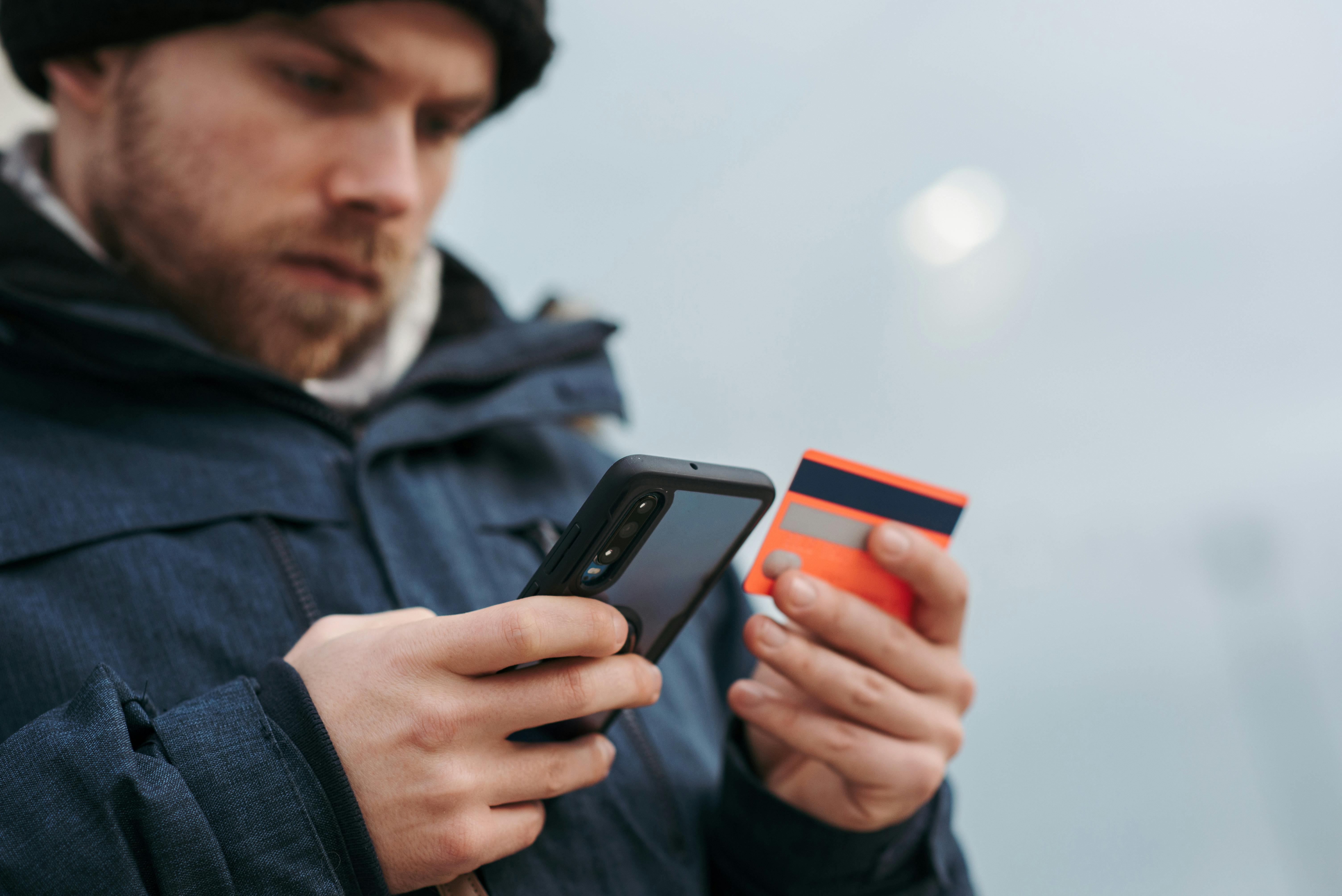Credit Card for Unemployed: What You Need To Know
Being unemployed needn’t mean you can’t get a credit card. Discover how to apply and how to improve your chances of approval.
Published:
When you purchase through links on our site, we may earn an affiliate commission. Here's how it works.

Being out of work can be an anxious time and can prove especially stressful when managing your finances. For whatever reason you find yourself unemployed, it can be disheartening to discover that banks are less likely to approve you for loans or credit cards.
Whether you're living off savings, receiving government benefits, or freelancing without a stable income, access to credit for emergencies or essential purchases can be reassuring. And while the best credit card deals may be beyond you, the good news is that all is not lost when it comes to credit cards for unemployed applicants.
Read on to find out how you may still get a low-income credit card. Discover what options are available, how to apply, and how to improve your chances of being approved.
Key takeaways
- It’s possible to get a credit card while unemployed, especially if you can show that you have alternative income sources like benefits, savings, or family support.
- Some credit cards, such as secured and credit-building cards, are designed for individuals with low incomes or poor credit histories.
- To qualify, you must meet the eligibility requirements, including being at least 18 years old and having a source of income.
- Being unemployed doesn’t directly impact your credit score. Instead, how you manage your credit during unemployment is key.
Can I get a credit card if I am unemployed?
Despite what you might think, it’s possible to get a credit card even if you're unemployed. Banks and credit card issuers are mainly concerned about your ability to repay. This means you’ll need to prove that you can pay your minimum payments on time, but you don't necessarily need to have a full-time job to be able to do this.
Providing you can show evidence of a steady income, some issuers will be ready to approve your application. This income could come in the form of government benefits, savings and investments, family allowance, or freelance work. When it comes to student credit cards, some issuers will consider student loans as a form of income.
What credit card options are available if I am unemployed?
There’s a range of credit cards tailored to individuals with low income or financial constraints. Read on for some of the features and benefits of each.
Secured credit cards
A secured credit card requires customers to pay a refundable security deposit that acts as a credit limit. This is a common credit card for bad credit or those looking for a credit card ‘no checks’ option. That’s because account holders are providing the credit upfront and are, therefore, more likely to be approved. Because secured credit cards report to most major credit agencies like Experian and Equifax, they're a smart way to rebuild your credit score.
Student credit cards
As the name suggests, these credit cards are tailored for those in continued education. Although they're often (but not always) limited to young adults or students and, therefore, have lower credit limits, they also tend to have lower income requirements and offer competitive rates of interest. Some, like the Santander 123 Student Credit Card, even offer cashback incentives and bonuses, and are among the best rewards credit cards in the UK.
Low-income credit cards
Some issuers offer credit cards for individuals with lower incomes. As such, there are fewer barriers to approval and a good choice for young adults looking for their first credit card. Credit limits tend to be lower than standard, and they often come with features that help account holders budget and manage credit.
Retail credit cards
Store cards typically have a lower threshold for approval, though they come with smaller credit limits, high interest rates, and are restricted to specific outlets. Provided the minimum payments are met, savings can be made through loyalty points schemes.
What eligibility criteria is there for a low-income credit card?
Although eligibility criteria vary between issuers, you’ll typically need to meet the following to be approved for a low-income credit card in the UK:
- You must be 18 years old.
- You must be a UK resident with proof of a permanent address.
- You'll need to provide details of a current account in your name. (You may wish to set up a direct debit from this account to ensure your minimum payment is met each month.)
- Issuers will want to see your credit history. While a perfect score won’t be required for low-income credit cards, the lower the score, the fewer options there will be available.
- Issuers will also want to know details of your income. For low-income credit cards, banks will be more likely to accept alternative income sources like benefits or savings.
How to apply for a low-income credit card
Applying for a low-income credit card follows largely the same process as applying for a standard credit card, but there are some areas you should pay specific focus to before submitting your application.
1. Find out your credit score
Use free credit agency services like ClearScore or Experian to find out your credit score. This will give you more information on how successful your application might be with certain issuers.
2. Make a note of your income
During your application, you'll need to provide information about your income, no matter how small. Have this to hand before applying and remember to include benefits, savings, family allowance, and (where applicable) household income. Don’t be tempted to exaggerate, and ensure that all information you provide is accurate.
3. Compare cards
Before selecting which card to apply for, do your research. Focus on credit cards designed for those with low income or poor credit so that you have a better chance of success.
4. Try a soft search
Some banks and comparison sites offer an eligibility checker before applying. This soft search doesn’t impact your credit score and will give you an indication as to whether you'll be approved.
5. Apply online
Most credit card issuers will expect you to apply online, though some may offer in-branch or over-the-phone applications. Online submissions usually take 15-20 minutes, and you can expect an instant decision.
6. Limit your applications
Don't panic if your application is rejected, and don't immediately apply elsewhere. Multiple applications can harm your credit score, so take your time and take stock of your remaining options.
What options are available if I also have poor credit history?
Combining unemployment with a poor credit history does limit your credit card options, but you’re not completely without choice. There are two potential credit card solutions:
Credit-builder credit cards
Specifically aimed at people with bad credit, these cards usually have higher interest rates and lower credit limits, but offer a useful stepping stone. Current credit-builder cards include the Vanquis Classic Card and Capital One Classic.
Secured cards
As mentioned above, these cards rely on your deposit rather than your credit score, meaning they offer little risk to the card issuer. These are often the most accessible routes for those with bad credit.
Does being unemployed affect my credit score?
Because your employment status isn't reported to credit agencies, being unemployed doesn’t affect your credit score. Instead, how you manage your finances while unemployed has a stronger bearing on your score. Missing or late payments, using a high proportion of your credit limit, or applying for too much credit will all negatively affect your score.
FAQs
Can government benefits count as income on a credit card application?
Yes, government benefits like Universal Credit or Jobseeker’s Allowance can count as part of your total income when applying for a credit card. Always ensure you’re honest and accurate when reporting income sources.
How can I improve my chances of approval while unemployed?
Maintaining good credit habits will ensure that issuers look kindly on your application even if you're unemployed. This means making payments on time, reducing debt, and being selective with your credit card applications.
How do I cancel a credit card?
Cancelling a credit card is a straightforward procedure. The first step is to pay off the full balance and then stop any recurring payments or subscriptions. Once that's done, contact your card provider by phone or online, and request that they close your account. You'll usually receive a confirmation letter or email within a few days. Once confirmed, cut up your card and dispose of it securely.
